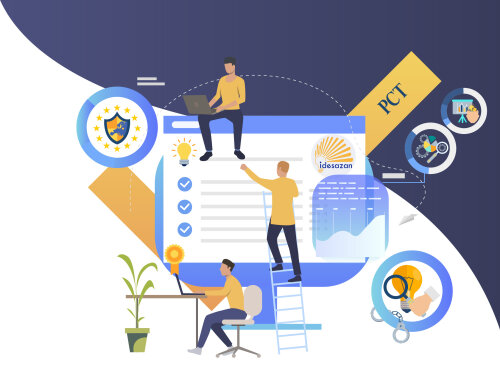Best Technology Transactions Lawyers in Tehran
Share your needs with us, get contacted by law firms.
Free. Takes 2 min.
List of the best lawyers in Tehran, Iran
About Technology Transactions Law in Tehran, Iran
In Tehran, Iran, technology transactions law covers a broad range of legal issues related to the creation, use, commercialization, and protection of technology and intellectual property. This area of law has grown significantly in importance as Tehran becomes more integrated into the global technology market. The legal landscape here must navigate complex issues such as software licensing, intellectual property rights, data protection, and cross-border technology transfer agreements, all while complying with international standards and local regulations.
Why You May Need a Lawyer
There are several scenarios where individuals or businesses may require legal assistance in technology transactions. If you are a business looking to license software or technology, an individual seeking to protect intellectual property, or a company acquiring or merging with another entity, legal guidance can help protect your interests. Additionally, if you face disputes over technology contracts, compliance issues under local or international laws, or challenges in safeguarding data privacy, consulting a lawyer can provide clarity and strategic advice.
Local Laws Overview
Tehran, under Iranian law, has specific statutes and regulations that impact technology transactions. Intellectual property laws in Iran are pivotal, governing the protection of patents, trademarks, copyrights, and trade secrets. Data protection is also a critical area, with regulations aimed at securing personal data against unauthorized access, though less expansive compared to some international standards. Compliance with Iran's e-commerce laws for online technology transactions, including digital signatures and consumer protection, is essential. Additionally, export control laws must be considered in cross-border technology transactions.
Frequently Asked Questions
What types of technology transactions are common in Tehran?
Common transactions include software licensing, technology transfer agreements, joint ventures, research and development collaborations, and IP rights acquisitions.
Is intellectual property protection robust in Tehran?
Iranian laws provide for the protection of intellectual property rights, but enforcement can be challenging. It is vital to seek legal advice to navigate the complexities of IP registration and protection.
How are software licenses regulated in Iran?
Software licenses in Iran are governed by contract law, and care must be taken to ensure agreements comply with both local and international standards to be legally enforceable.
What are the penalties for data breaches?
The penalties can vary but typically involve fines, and in some cases, more severe criminal consequences depending on the nature and extent of the breach.
Can foreign companies engage in technology transactions in Tehran?
Yes, foreign companies can engage in technology transactions in Tehran, though they may need to comply with specific legal and regulatory requirements and possibly partner with local entities.
What is needed to enforce a technology contract in Tehran?
To enforce a technology contract, it should be well-drafted, clearly defining all terms and conditions, and parties should be prepared to navigate the Iranian judicial system or alternative dispute resolution mechanisms.
Are there specific compliance issues foreign investors should be aware of?
Foreign investors should be astute to local regulations concerning foreign investment, technology transfer regulations, and potential US or international sanctions targeting certain activities in Iran.
How should companies handle data privacy?
Companies should implement robust data protection policies and procedures to ensure compliance with local data protection regulations, even though they are not as developed as in other regions.
Is it necessary to register technology-related intellectual property in Iran?
To gain full legal protection, it is advisable to register patents, trademarks, and copyrights with appropriate Iranian authorities.
How can disputes in technology transactions be resolved?
Disputes can be resolved through litigation in Iranian courts or, more commonly, via arbitration or mediation to reach an amicable settlement.
Additional Resources
For additional support, consider consulting with the Iranian Ministry of Information and Communications Technology, accessing resources from the Iranian Industrial Property Office, and exploring the services offered by local legal associations specializing in technology law.
Next Steps
If you require legal assistance in technology transactions, consider consulting with a qualified technology transactions lawyer in Tehran. Look for professionals with experience in intellectual property, data protection, and contract law. Before proceeding, gather all relevant documents and prepare questions or concerns regarding your specific technology transaction needs.
Lawzana helps you find the best lawyers and law firms in Tehran through a curated and pre-screened list of qualified legal professionals. Our platform offers rankings and detailed profiles of attorneys and law firms, allowing you to compare based on practice areas, including Technology Transactions, experience, and client feedback.
Each profile includes a description of the firm's areas of practice, client reviews, team members and partners, year of establishment, spoken languages, office locations, contact information, social media presence, and any published articles or resources. Most firms on our platform speak English and are experienced in both local and international legal matters.
Get a quote from top-rated law firms in Tehran, Iran — quickly, securely, and without unnecessary hassle.
Disclaimer:
The information provided on this page is for general informational purposes only and does not constitute legal advice. While we strive to ensure the accuracy and relevance of the content, legal information may change over time, and interpretations of the law can vary. You should always consult with a qualified legal professional for advice specific to your situation.
We disclaim all liability for actions taken or not taken based on the content of this page. If you believe any information is incorrect or outdated, please contact us, and we will review and update it where appropriate.








